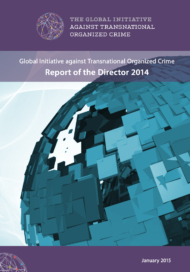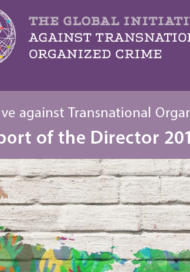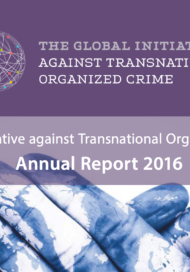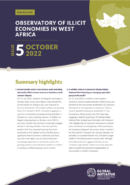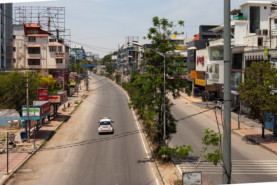Posted on 17 Mar 2015
The Global Initiative against Transnational Organized Crime was conceived from a series of closed-forum dialogues with thirty senior law enforcement officials, representatives of multilateral organizations, development practitioners and policymakers, hosted by the International Peace Institute in New York in 2011-12.
At these meetings, the founding members of the Global Initiative described a situation where the challenge from organized crime was unprecedented and poorly understood, and for which current tools seemed inadequate for the task. They concluded that the problem and its impacts are not well analyzed; they are not systematically integrated into national plans or strategies; and, existing multilateral tools have not been adapted and frequently fail to provide a sufficient return on the investment of both human and financial resources. While there have been some successes, these are not enough to claim that our responses are catching up with organized crime. In their view, existing forms of cooperation tend to be bilateral, slow, and restricted to a limited number of like-minded states.
What is required, it was concluded, is a more strategic and proactive global approach to counter transnational crime and trafficking. This is not only a law-enforcement responsibility. A “whole-of-government” and a more holistic approach is needed at a time when policymakers are increasingly seeking new ideas to inform their responses. Critically, there needs to be space created to debate and develop new initiatives with a wide range of engaged stakeholders and experts.
The participants in these meetings called for a network of experts to be formed that would allow for a much needed debate of the challenges and to serve as an incubator for new integrated strategies. Such a network should consist of experts from a range of thematic disciplines. They should not be constrained by institutional parameters, but should coalesce around common areas of experience such as law enforcement, development, media, the rule of law, research and policy development.
It was with this vision that the Global Initiative against Transnational Organized Crime was born in April 2013, launched in September 2013 at a high-level conference at the United Nations in New York, and formally registered as an independent Swiss NGO in January 2014.
The Global Initiative was always intended to be a network of experts – “a network to counter networks” – as described in the founding document, rather than a classic think tank or civil society organization. The founders envisaged a light structure with a small secretariat that facilitated the work of the Network, rather than a large organization with a big footprint. Thus, in its first years of operations, the Global Initiative has commenced with a range of projects and programmes, carefully selected to maximize the visibility and impact of the organization as a credible interlocutor and reliable partner, whilst at the same remaining consistent to the vision of the founding members of the Global Initiative.
